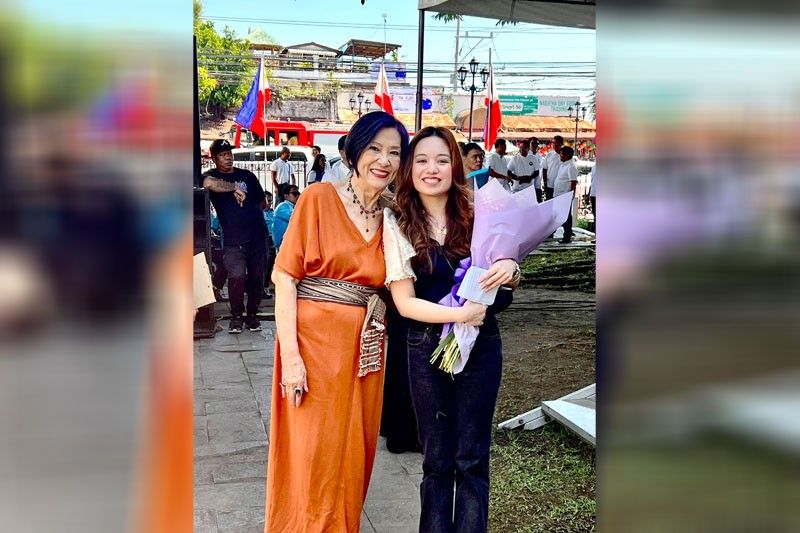New Rizal generation


June 19, 1861 was our national hero Jose Rizal’s birthday. He had no direct descendants, only collateral descendants, those descended from his brother or sisters. They were 11 children in his family. The eldest sister was Saturnina, followed by Paciano, then Narcisa, Lucia, Olimpia and my great-grandmother Maria. Then came the only other brother, Jose, followed by Concepcion who died as a toddler; followed by Trinidad, Josefa, and the youngest, Soledad. Except for Jose, Concepcion, Trinidad and Josefa (who never married), the rest provided the collateral descendants.
This year Maria’s great-granddaughter, Gemma Cruz Araneta, played a major role in getting her cousins to go to Calamba at the invitation of Mayor Roseller Rizal coursed through Abet Filart, great-grandson of Olimpia. Gemma invited her cousins and their children to lunch at her son Leon’s restaurant, Kashmir. There she talked about passing on the descendant’s torch to the younger generation. She asked them to speak at the birthday ceremony. She looked for volunteers. To my pleasant surprise, my granddaughter, Maxine Cruz, volunteered. Then and there, I was proud of her.
Maxine is a kind of public speaker. She is one of the announcers of Radyo Katipunan, a job she picked up taking a communications course at the Ateneo across the street. On our way out of Kashmir that Sunday, Gemma pulled me aside and said, “You better look over Maxine’s shoulder as she writes her speech to make sure it’s a good one.”
“Don’t worry,” I said. “She will do a wonderful job.”
Of course, I did not look over Maxine’s shoulder. Her father, Gino, is my only son. After only a few days her maternal grandfather suddenly passed away in Bataan. They rushed over and stayed there for a few days. I could only send my condolences and asked Gino if she still would make the speech. “No worries, Mom,” he said. “We will be there.”
And there they were, bright and early. They even got to the Rizal shrine ahead of me. We sat dutifully through all the speeches made by the invited officials of Calamba applauding at the end of every speech. On my lap I carried a bouquet of white roses with light violet at the rim of every petal for my granddaughter, Maxine, who is 22 years old. This is the first time she will speak publicly. I felt I had to pay her tribute for the work she did on her speech in spite of her grandfather’s passing away so suddenly. That, I thought, required a lot of courage.
She sat by herself among Calamba’s illustrious officials. She didn’t seem to mind. She wore black jeans with a terno top that resembled a bolero with butterfly sleeves. I think that’s the way young people interpret our traditional terno. I don’t blame them. To wear it traditionally is a real problem. We were asked to wear Filipiniana. I chose to wear one of my old dresses but wrapped around my waist a long beaded runner from a tribe in Abra with whom I worked when I was with the Coca-Cola Foundation Philippines. That was ethnic and Filipino enough for me.
Maxine confidently walked up to the stage when she was called. She had her speech, which she delivered faultlessly: “I am Maxine Cruz, descendant of Jose Rizal’s sister, Maria and a new-generation representative of the family. Today, as reiterated, we are here to celebrate our grandfather and national hero Jose Rizal. A writer, doctor, leader — among many other talents. In today’s words, we would call him a “Renaissance man” as he excelled in anything and everything he put his mind to at the time. Today also marks what we call “the changing of the guards” within the family. A new generation is stepping up to bring him closer to the Filipino people. This, however, does not mean starting from scratch, or erasing the past. This simply means continuing and strengthening what has already been built by adapting our methods to the world we live in today, and above all, continuing the legacy of our hero. A torch is being passed on to us, and we intend to make the flame burn even brighter…
Rizal was exiled in his life. He took it as an opportunity instead of a hindrance. In his time in Dapitan, Rizal did not give in to sadness, but instead committed himself to improving the quality of life in the area…”
You can imagine how proud she made me. I felt like a cloud soaring proudly in the sky. She wrote this by herself with no help from her parents and especially none from me. She was speaking for herself. That’s my granddaughter — intelligent, independent, beautiful. Other speakers from the family were Paolo Azurin from the Paciano line and Racky Torres Manalastas from the Narcisa line. They all spoke so well, and we collateral descendants are so profoundly grateful for this young enthusiastic generation.
* * *
Please text your comments to 0998-991-2287.



















